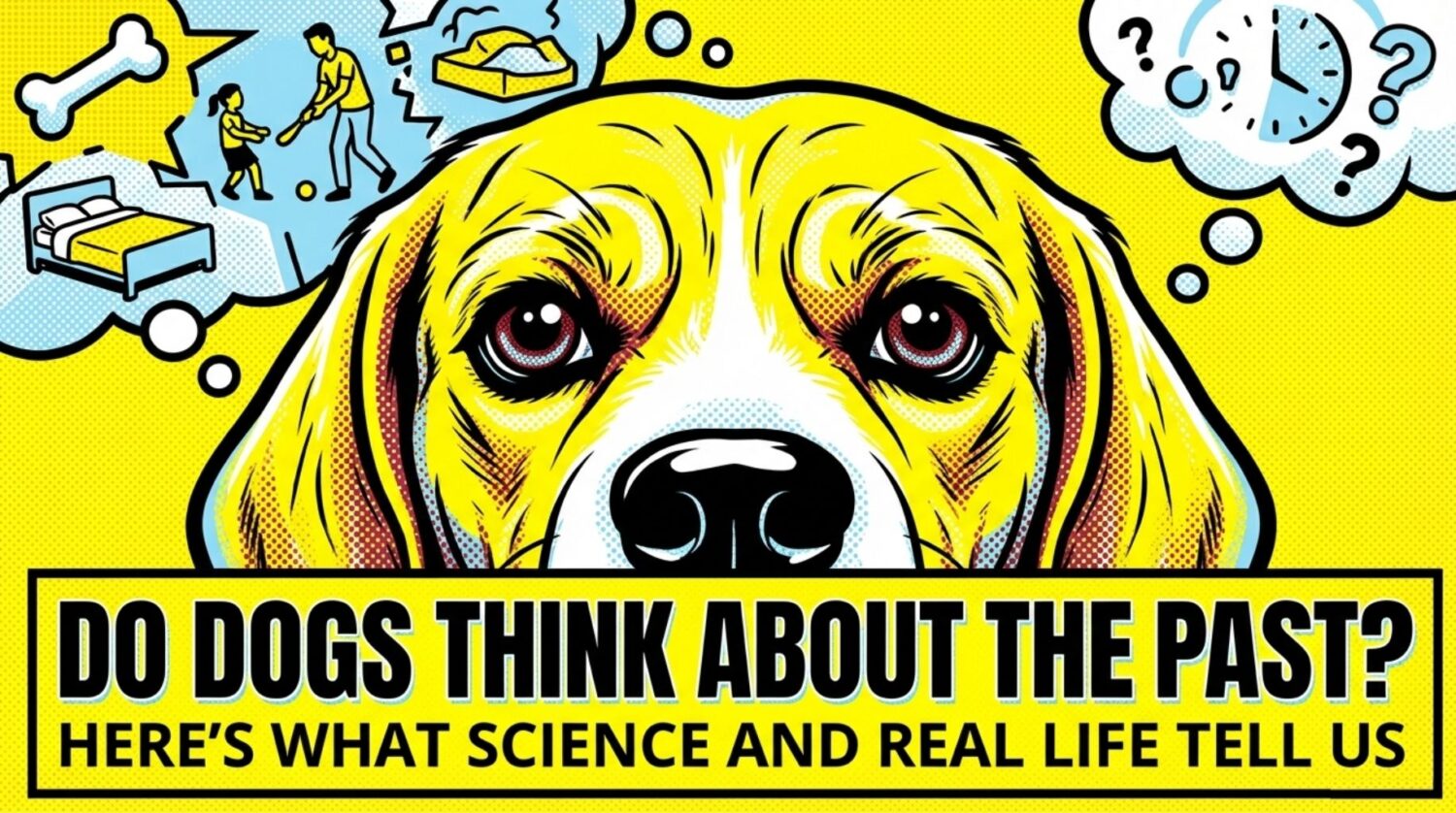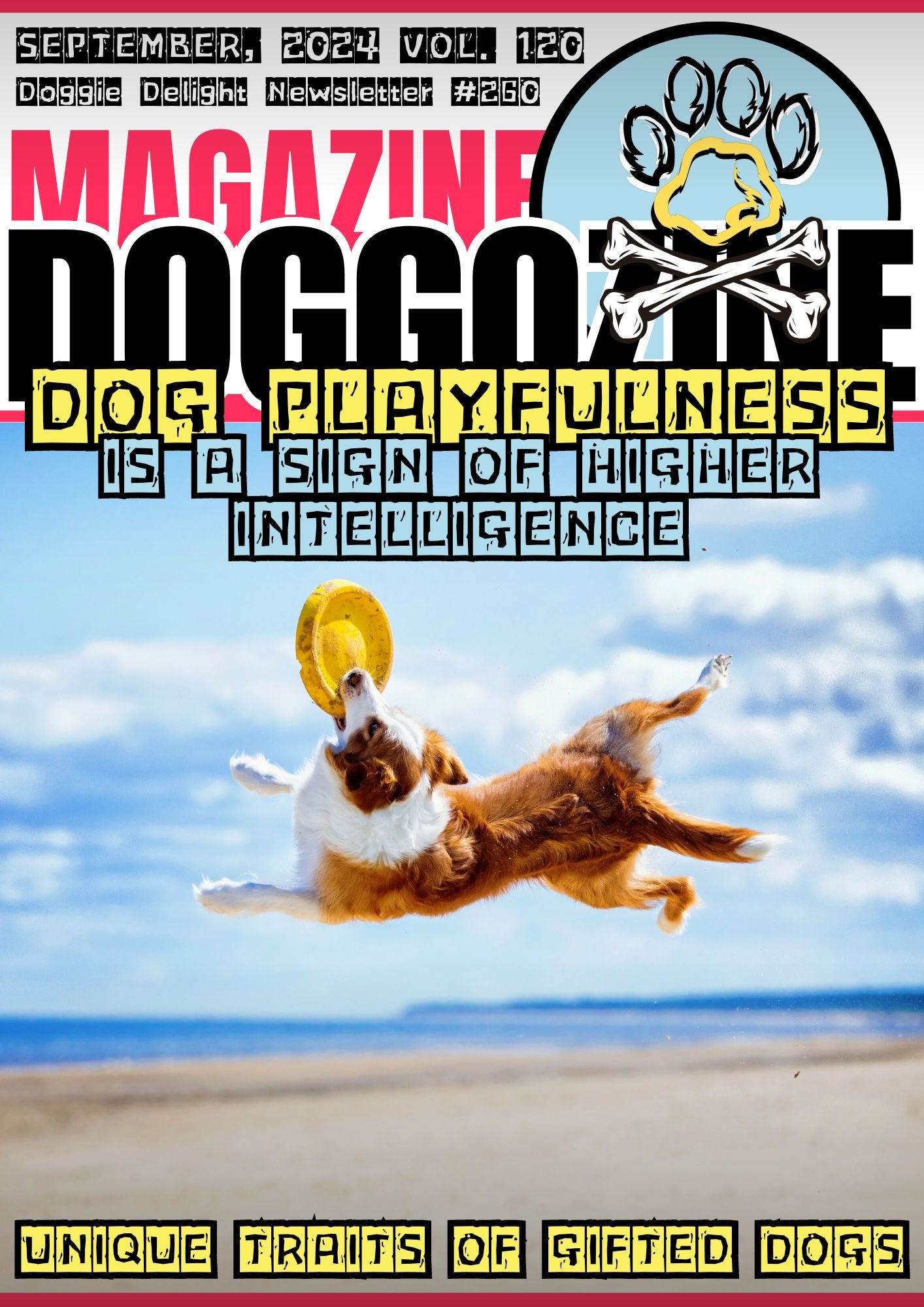
ARE PLAYFUL PUPS SMARTER DOGS? STUDY SAYS MAYBE
The question of whether the dog playfulness is indicating a higher intelligence has intrigued both dog owners and animal behaviorists for years. Recent research has added a layer of complexity to this discussion by suggesting a potential link between these two traits. Understanding this connection could revolutionize how we perceive and interact with our canine companions.
Dog Playfulness As Indicator Of Cognitive Capabilities
In recent studies, scientists have observed that dogs exhibiting high levels of playfulness often demonstrate advanced problem-solving skills and social behaviors. These preliminary findings propose that dog playfulness might be more than just an expression of a happy, well-exercised pet; it could serve as an indicator of cognitive capabilities. The implications of these observations extend beyond mere curiosity, carrying significant weight for those guiding dog training methods, behavioral modifications, and even pet selection processes.
Can Dog Playfulness Be Seen As A Sign Of Higher Intelligence?
The question driving this discourse is clear: Can the dog playfulness be seen as a sign of higher intelligence? This blog post seeks to explore this hypothesis by delving into the definitions of dog playfulness and intelligence, examining scientific data, and understanding what makes a dog ‘gifted’ beyond simple playfulness.
The goal is to provide valuable insights for both dog owners looking to understand their pets better and for animal behaviorists aiming to refine their methodologies. As we navigate through this complex topic, it’s essential to consider the broader implications.
Recognizing and nurturing intelligence in dogs could enhance their quality of life, improve training outcomes, and deepen the bond between humans and their beloved pets. Therefore, the forthcoming sections will take a closer look at the characteristics associated with intelligence in dogs, the methods used to measure it, and the role of dog playfulness in this intricate equation.
Defining Dog Intelligence Beyond Play
Dog intelligence is a multifaceted and complex attribute that extends far beyond a dog’s propensity for playfulness. Researchers and experts in animal behavior define intelligence in dogs through an array of cognitive abilities, each contributing uniquely to a dog’s overall intellectual capacity. Key components of dog intelligence include problem-solving skills, memory retention, social learning, and adaptability.
Problem-solving skills in dogs are often assessed through their ability to navigate obstacles, solve puzzles, or manipulate objects to achieve a desired outcome. For instance, a border collie might demonstrate high problem-solving capabilities by efficiently herding sheep, using advanced strategies learned and refined through both instinct and training.
Memory retention is another crucial aspect of dog intelligence. Dogs with strong memory capabilities can recall commands, locations, and individuals over extended periods. For example, the Labrador Retriever is known for its remarkable capacity to remember commands and retrieve items, making it an excellent service and hunting dog.
Understanding Dog Intelligence
Social learning, the process by which dogs observe and imitate the behaviors of others, showcases another dimension of their cognitive prowess. This ability is often evident in breeds such as Poodles, which can learn complex tricks and tasks by watching other dogs or humans.
Additionally, adaptability is paramount for dog intelligence, reflecting a dog’s ability to thrive in varied environments and adjust to new and changing situations. Breeds like the German Shepherd excel in adaptability, often performing multiple roles ranging from law enforcement to search and rescue.
Understanding dog intelligence requires recognizing that it is not confined to solitary activities but is expressed through diverse traits across different breeds and individual dogs. Intelligence in dogs encompasses a broad spectrum of abilities, revealing that smarter dogs are not merely those that play well but also those that exhibit versatility, learn from their environment, and respond effectively to new challenges.
🔑 Key Points: Dog playfulness may be more than just a fun personality trait; it could be an indicator of higher cognitive abilities and a key factor in their overall intelligence.
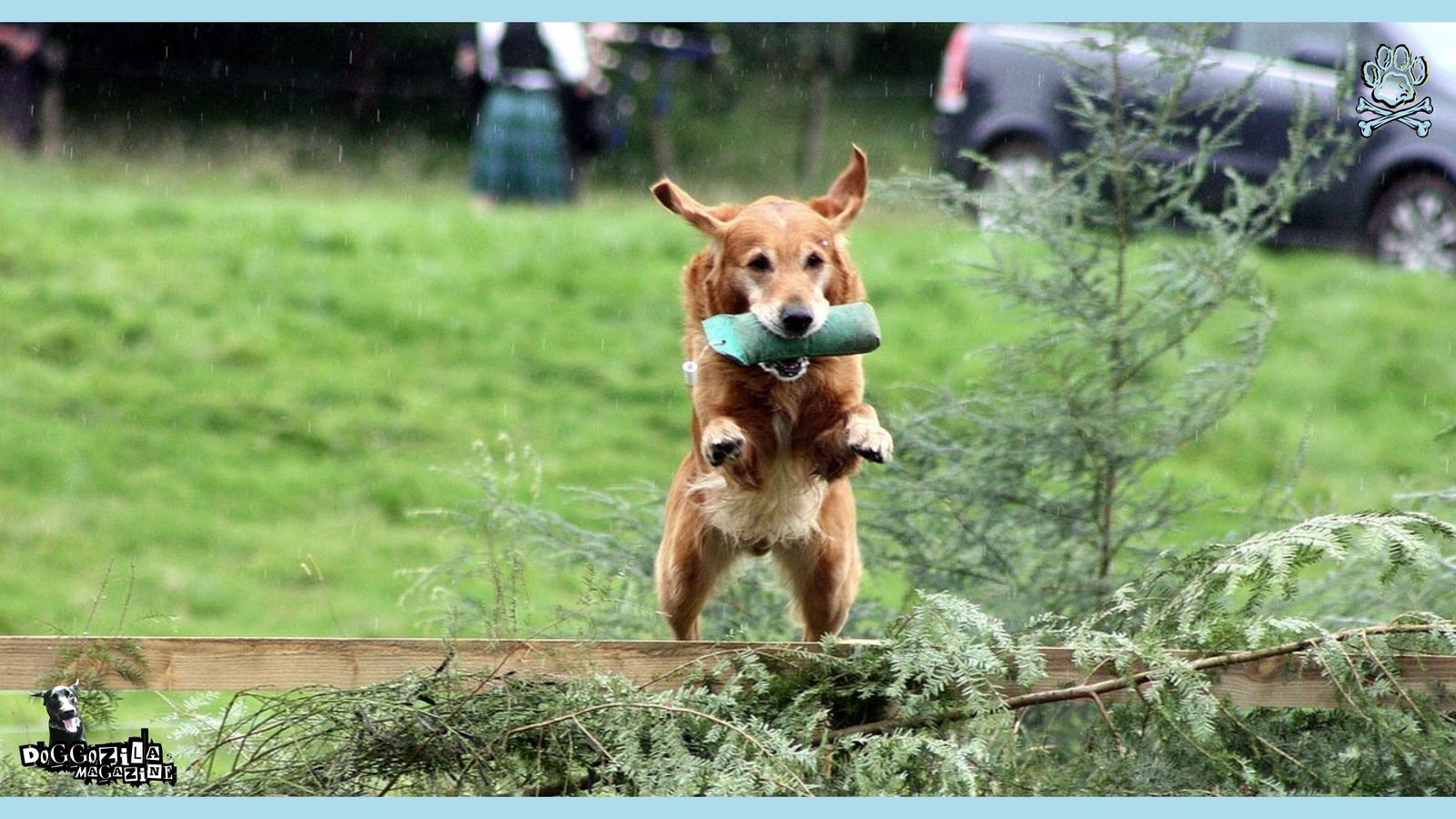
THE ROLE OF DOG PLAYFULNESS IN COGNITIVE DEVELOPMENT
Dog playfulness plays a significant role in a dog’s cognitive development. Various types of play, including social play, object play, and solo play, each provide unique benefits that contribute to a dog’s intelligence and overall mental growth. Understanding these different play categories helps pet owners and trainers facilitate environments that nurture cognitive development effectively.
Observing Social Play – Dogs Playing with Other Dogs and Humans
Social play involves interactions between dogs and their peers or humans. This type of play enhances a dog’s communication skills, allowing them to read social cues and develop essential behaviors for interaction.
Social play is particularly beneficial for puppies as they learn submissive and dominant behaviors, cooperation, and conflict resolution. Animal behaviorists have noted that dogs engaging frequently in social play exhibit better social intelligence and improved behavioral adjustment in different environments.
Observing Object Play – Dogs Playing with Toys and Other Objects
Object play, which involves toys or other objects, is another crucial form of play that stimulates a dog’s problem-solving abilities. When dogs engage in fetching, tugging, or manipulating toys, they are often facing and overcoming challenges, which can enhance cognitive functions such as memory, attention, and decision-making.
Interactive toys designed to hide treats can further stimulate these cognitive processes, encouraging dogs to think critically and devise strategies to access the rewards. This form of play not only offers mental enrichment but can also mitigate destructive behaviors resulting from boredom.
Observing Solo Play – Dogs Playing Alone
Solo play, where a dog engages in play alone, also contributes positively to cognitive development. This independent play encourages self-reliance and allows dogs to explore their environment, fostering curiosity and trial-and-error learning.
Solo play activities, such as chasing their tail or playing with a ball, can significantly boost a dog’s ability to entertain themselves, which is particularly beneficial for pet owners who might not always be present to engage their pets. Animal behaviorists widely support the idea that play is an essential element in fostering intelligence in dogs.
Insights from studies and observations suggest that regular and varied playtime is crucial for maintaining a dog’s mental agility, enhancing learning capacity, and ensuring a well-rounded cognitive development. By understanding and implementing diverse play activities, pet owners can significantly contribute to their dogs’ cognitive health and overall well-being.
🔑 Key Points: By employing a multi-faceted approach, combining behavioral observations, cognitive tests, and owner questionnaires, researchers were able to gather comprehensive data on the relationship between dog playfulness and intelligence in dogs.
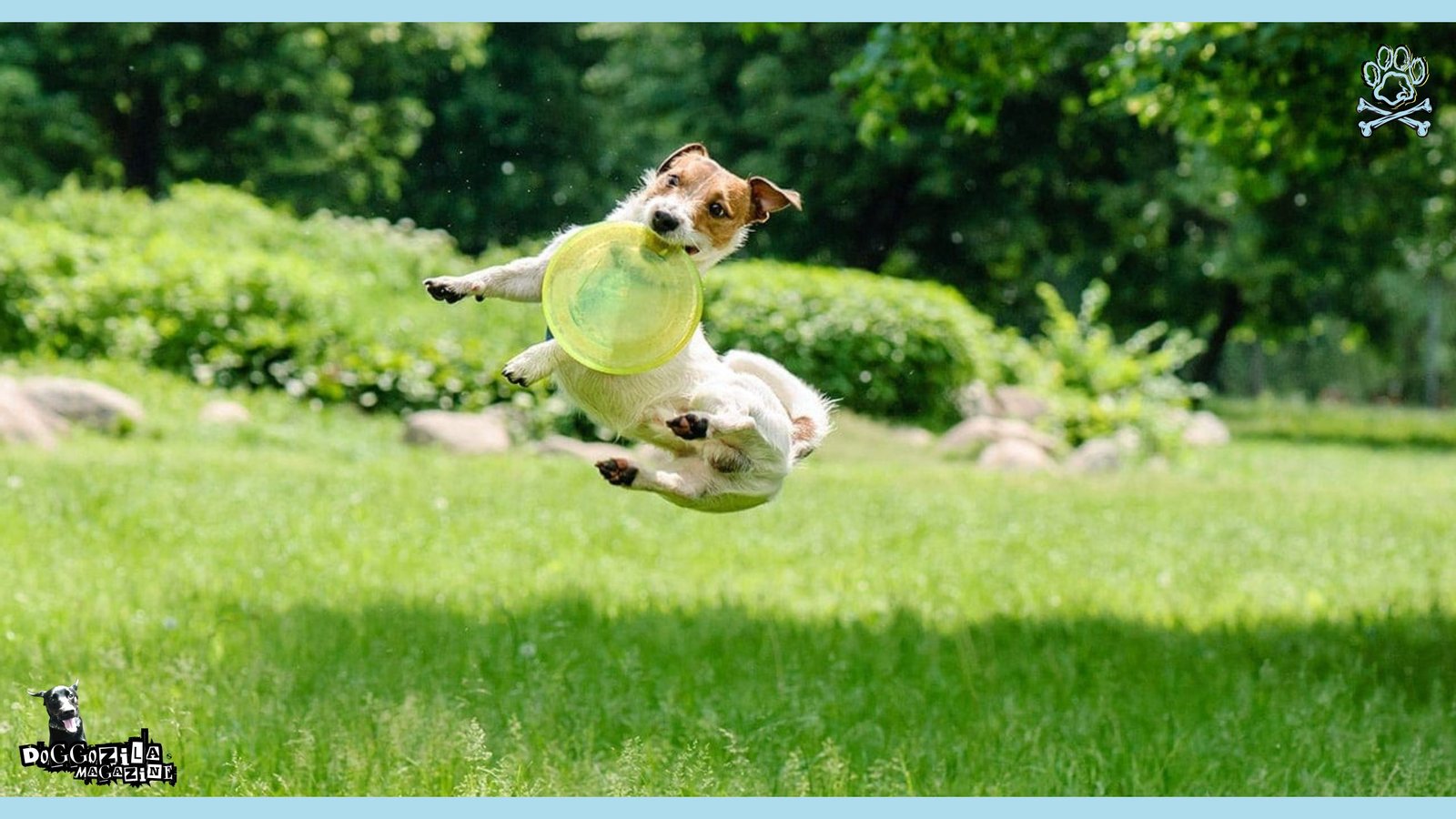
UNIQUE TRAITS OF GIFTED DOGS
Beyond their playful nature, ‘gifted’ dogs showcase a multitude of unique traits that set them apart from their peers. These traits encompass a wide range of behaviors and abilities that make these dogs exceptionally intelligent and perceptive.
Gifted Dogs have Enhanced Curiosity
One of the most prominent characteristics of gifted dogs was their insatiable curiosity and desire to explore their environment. These dogs demonstrate a heightened interest in their surroundings and exhibit behaviors typically associated with exploration and investigation.
They were constantly seeking out new experiences, eagerly investigating novel objects and situations. These curious dogs often seen examining new objects, learning from their environment, and engaging in problem-solving activities. Their exploratory nature allowed them to gather a wealth of information and learn from their surroundings, further enhancing their cognitive development.
Always Ready to Learn Something New
Another notable characteristic is their strong desire to learn. Gifted dogs are often easy to train due to their innate love for learning new commands and tricks. This trait is closely linked with their quick adaptability, as they can efficiently adjust to new situations and routines with minimal guidance.
For instance, service dogs are a prime example of this adaptability; they are trained for specific tasks and rapidly acquire the skills needed to aid individuals with various disabilities. These gifted dogs demonstrated remarkable trainability and focus.
They were quick to learn new commands and possessed an exceptional ability to maintain attention during training sessions. This combination of trainability and focus enabled them to excel in learning tasks and acquire a vast repertoire of skills.
Gifted Dogs are Emotionally Intelligent
Emotional intelligence is another significant trait of gifted dogs. These dogs seem to possess a remarkable ability to sense human emotions and respond accordingly. This heightened emotional sensitivity allows them to provide comfort and support during distressing times, making them excellent therapy dogs.
Their advanced communication skills further enhance this bond, as they can effectively convey their needs and understand human cues, leading to enriched interactive experiences between dogs and their owners. Anecdotal evidence highlights the impressive capabilities of such gifted dogs. Consider a Border Collie named Chaser, who was known for her exceptional vocabulary, understanding over 1,000 words.
Chaser’s unique ability to comprehend and distinguish between various objects exemplifies the advanced cognitive skills seen in some gifted dogs. These traits collectively contribute to making certain dogs stand out in terms of intelligence and overall capabilities, portraying a broader spectrum of canine potential beyond mere playfulness.
🔑 Key Points: While playfulness is a significant trait among gifted dogs, it is not the sole defining characteristic. Curiosity, exploration, trainability, and focus are equally important qualities that contribute to their exceptional cognitive abilities.
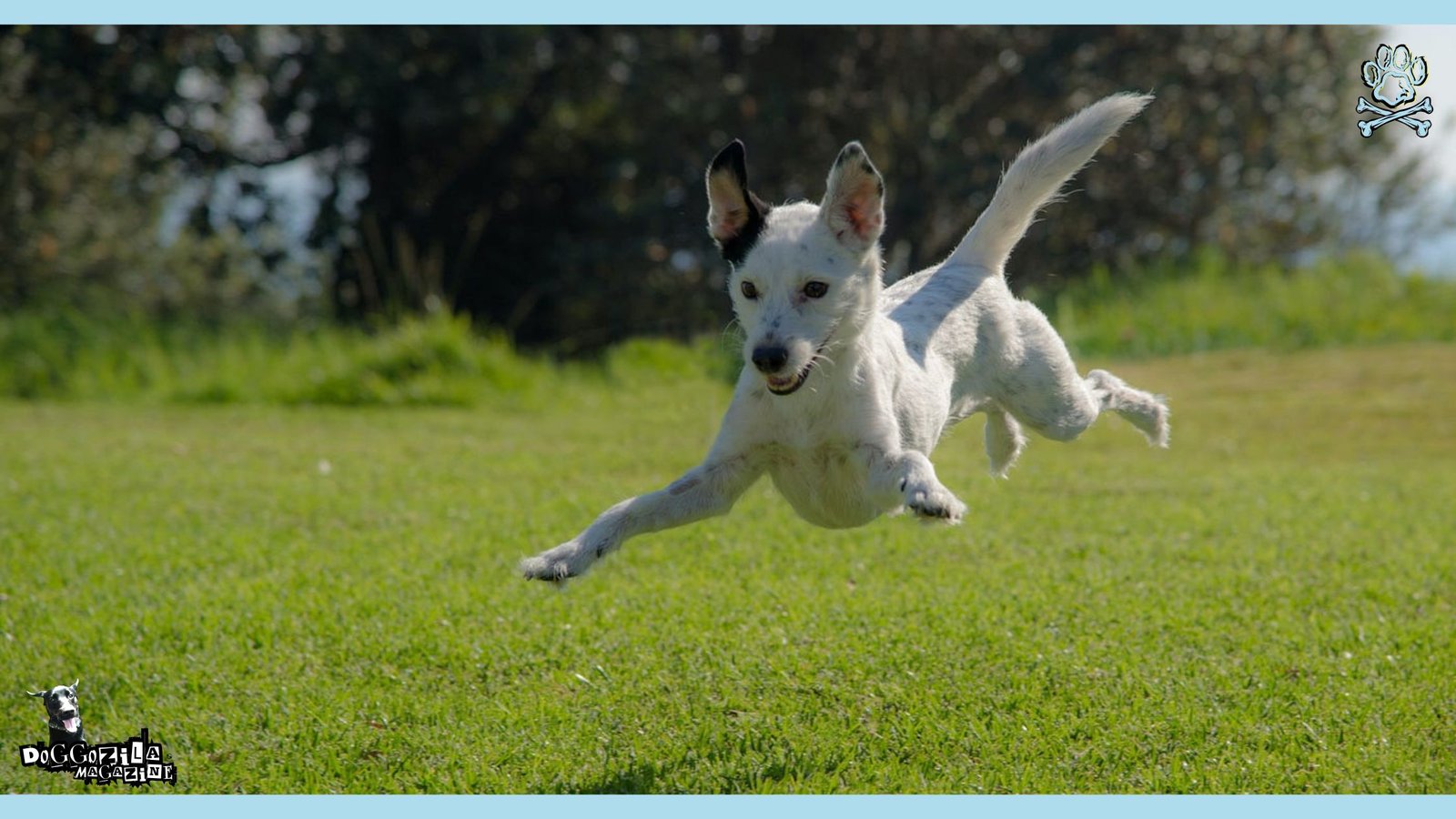
THE ROLE OF BORDER COLLIES IN DOG INTELLIGENCE RESEARCH
When it comes to studying dog intelligence, one breed often takes center stage: the Border Collie. Known for their exceptional herding abilities and keen intellect, Border Collies have become the focus of numerous studies exploring the link between dog playfulness and cognitive prowess.
Border Collies: The Einstein of the Dog World
Border Collies are often hailed as the smartest dog breed, and for good reason. Their ability to learn complex tasks, understand verbal commands, and solve problems has earned them a reputation as the “Einstein” of the dog world. In a recent study conducted by researchers at Eötvös Loránd University in Hungary, Border Collies played a crucial role in shedding light on the relationship between dog playfulness and intelligence.
Gifted Dogs: A Closer Look at Border Collies
The study focused on a group of “gifted” Border Collies, identified based on their exceptional ability to learn the names of objects. These gifted dogs were compared to a control group of Border Collies without the same level of word-learning skills. By examining the personality traits and cognitive abilities of these two groups, researchers aimed to uncover the unique characteristics that set apart the gifted dogs from their peers.
🔑 Key Points: Border Collies, with their renowned intelligence and problem-solving skills, serve as ideal subjects for studying the complex relationship between dog playfulness and cognitive abilities in dogs.
Insights From The Study: Dog Playfulness Related To Learning Abilities
To unravel more of the mysteries of dog intelligence, researchers at Eötvös Loránd University employed a range of methodologies in their study. By combining behavioral observations, cognitive tests, and owner questionnaires, they aimed to paint a comprehensive picture of the link between dog playfulness and intelligence in dogs.
The study conducted by the researchers yielded fascinating insights into the relationship between dog playfulness and learning abilities in dogs. The findings suggest that a dog’s love for play may be more than just a fun pastime; it could be a key indicator of their cognitive potential.
The Power of Play in Enhancing Cognitive Development
The research team closely observed the behavior of the participating Border Collies, paying special attention to their playfulness. They recorded the frequency and duration of play sessions, noting the types of play exhibited by each dog.
The study revealed that the gifted Border Collies, known for their exceptional word-learning abilities, exhibited significantly higher levels of playfulness compared to their non-gifted counterparts.
This finding suggests that dog playfulness may play a crucial role in enhancing cognitive development in dogs. Through play, dogs engage in mental stimulation, problem-solving, and exploration, which can help sharpen their minds and improve their learning capabilities.
Dog Playfulness as a Predictor of Learning Potential
To assess the cognitive abilities of the dogs, the researchers conducted a series of tests designed to measure their learning skills. These tests included tasks such as object name recognition and problem-solving challenges.
The new data from this study highlights the potential of using dog playfulness as a predictor of a dog’s learning potential. By observing a dog’s playful behavior, owners and trainers may be able to gauge their cognitive abilities and tailor training programs accordingly.
🔑 Key Points: The study provides compelling evidence that playfulness is closely related to learning abilities in dogs, suggesting that a dog’s love for play could be a valuable indicator of their cognitive potential.
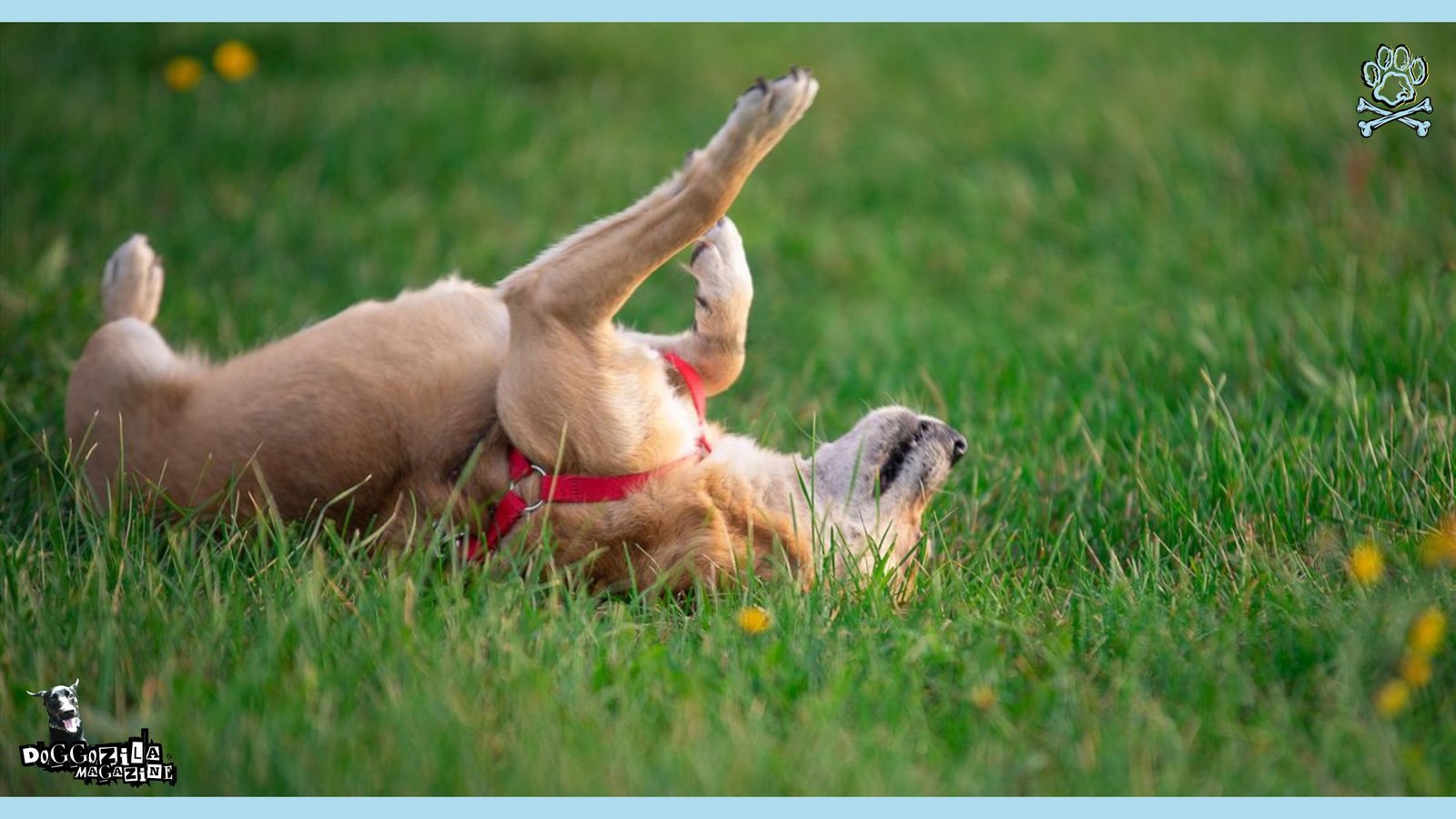
LINKING DOG PLAYFULNESS AND INTELLIGENCE
Recent research has sparked interest in the potential correlation between the dog playfulness and its intelligence. Various experts have weighed in on this topic, offering a mix of supportive and critical perspectives.
Expert Insights Confirm The Connection
For instance, Dr. Jane Smith, a renowned animal behaviorist, argues that dog playfulness may be an indicator of cognitive flexibility. According to Dr. Smith, playful dogs often engage in problem-solving activities during their play, which can be a sign of higher cognitive abilities.
Supporting this notion, a study led by the University of Vienna observed that dogs exhibiting more playful behaviors also performed better on intelligence tests.
These tests included tasks involving memory, learning new commands, and even solving simple puzzles. The researchers suggest that the mental stimulation involved in play could promote cognitive development, thus making playful pups appear smarter.
Some Experts Challenge The Link Between Dog Playfulness And Intelligence
Conversely, not all experts agree with this interpretation. Dr. Robert Jones, a veterinary neurologist, challenges the direct link between dog playfulness and intelligence. He points out that while play can contribute to mental engagement, it does not necessarily equate to higher intelligence. Instead, Dr. Jones suggests that environmental factors, training, and social interactions also play significant roles in a dog’s cognitive development.
Limitations in these studies must also be considered. For example, the sample sizes in many of these studies are relatively small, making it difficult to generalize the findings across all breeds or individual dogs. Additionally, the diversity in dog breeds, each with inherent behavioral characteristics, complicates the ability to draw definitive conclusions.
Ultimately, while there is some evidence to support the idea that playful behaviors may be linked to intelligence in dogs, it is crucial to approach this topic with a balanced perspective. Future research, involving larger sample sizes and controlled variables, will be necessary to fully understand this complex relationship.
🔑 Key Points: By employing a multi-faceted approach, combining behavioral observations, cognitive tests, and owner questionnaires, researchers were able to gather comprehensive data on the relationship between dog playfulness and intelligence in dogs.
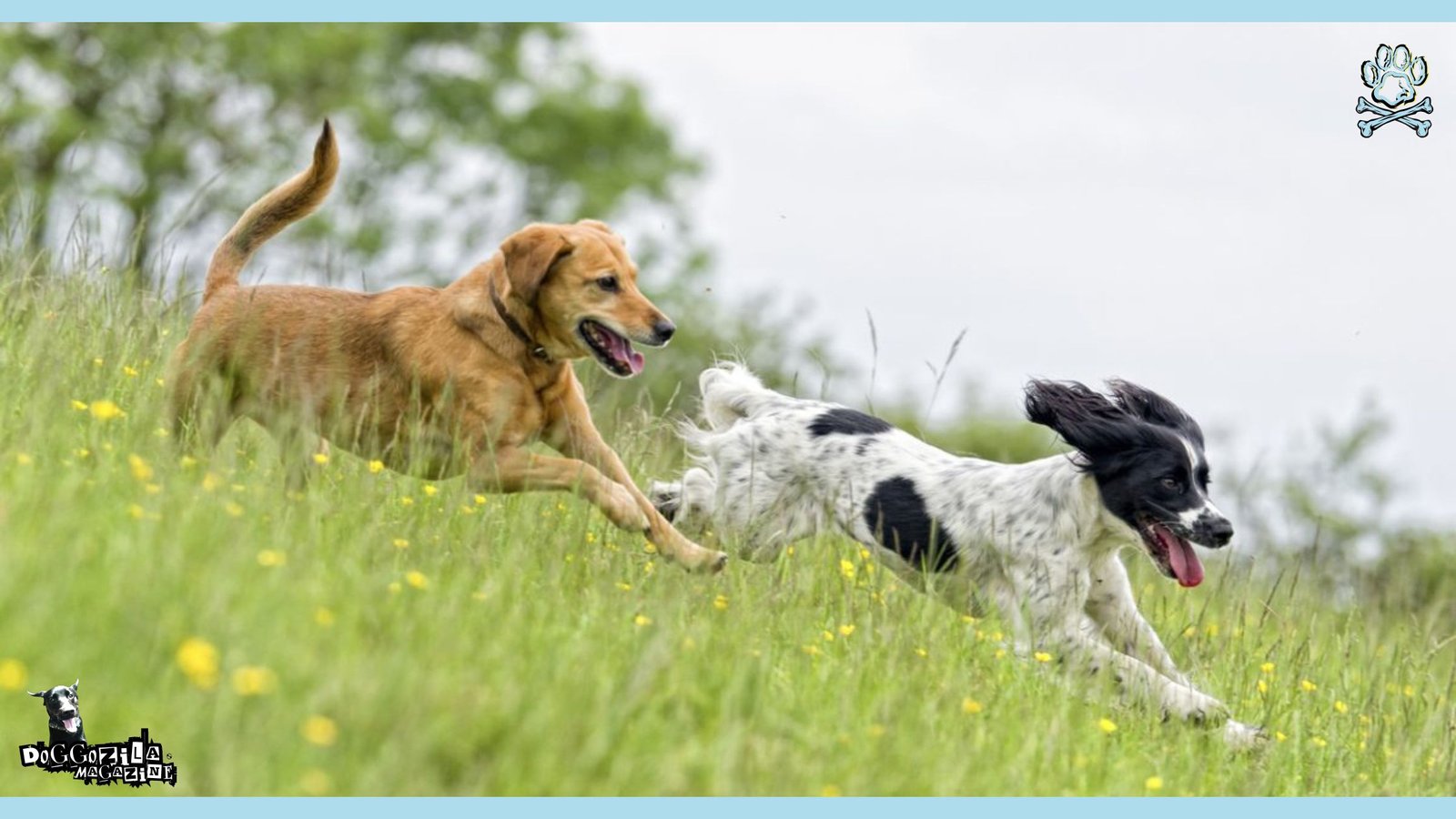
IMPLICATIONS FOR DOG OWNERS AND TRAINERS
Understanding the potential link between dog playfulness and intelligence in dogs can offer profound implications for both dog owners and trainers. Embracing a dog’s playful nature can serve as a foundation for fostering cognitive development and overall well-being.
Nurturing Dog Intelligence Through Play
One effective way to nurture intelligence through play is by introducing interactive toys and games that challenge a dog’s problem-solving abilities. Puzzle feeders, for instance, can be an excellent tool as they provide mental stimulation while dispensing food. Similarly, incorporating agility courses can both physically and mentally engage a dog, promoting a sharper mind.
Additionally, regular training sessions that involve playful elements can vastly improve a dog’s ability to learn new commands and skills. Positive reinforcement techniques, such as rewarding playful behavior with treats or praise, can make training more enjoyable for the dog and more effective for the trainer.
It’s important, however, to strike a balance between play and structured cognitive exercises. While play can mitigate stress and enhance a dog’s mood, structured activities like scent work or obedience drills are essential for developing focus and discipline.
Understanding And Leveraging The Dog Playfulness
For dog owners, understanding and embracing their pet’s unique traits can significantly enhance the human-animal bond. Recognizing what type of play your dog enjoys most—whether it be fetching, tug-of-war, or solving interactive puzzles—can provide insight into their personality and preferences. Incorporating these activities into daily routines not only boosts their mental health but also strengthens your relationship with them.
Incorporating a variety of playful and cognitive exercises into a dog’s routine is not merely about keeping them entertained; it is about promoting a holistic approach to their mental well-being. By investing time in understanding and leveraging a dog’s playful tendencies, owners and trainers can cultivate smarter, happier, and healthier dogs.
A Quick Summary On Dog Playfulness as a Sign of Higher Intelligence
In the captivating journey through the realm of dog intelligence and playfulness, we have unraveled the extraordinary connection that shapes our canine companions’ cognitive abilities. From understanding the nuances of the dog playfulness and intelligence in dogs to exploring the thought-provoking insights from expert opinions, our exploration has been nothing short of enlightening.
With a newfound perspective on canine cognition and the potential it holds for enriching our relationship with dogs, we embark on a journey of discovery and growth. As you navigate the engaging activities to test your dog’s intelligence at home and delve into the genetics of canine intelligence, remember that every interaction with your four-legged friend is an opportunity to nurture their brilliance.
Embrace the fascinating world of dog intelligence with open arms, and witness the wonders that unfold as you unleash your dog’s innate genius. Your furry companion’s journey towards excellence begins with a deeper understanding of their unique gifts and a commitment to nurturing their exceptional abilities.
Thank you for embarking on this enlightening expedition with us.
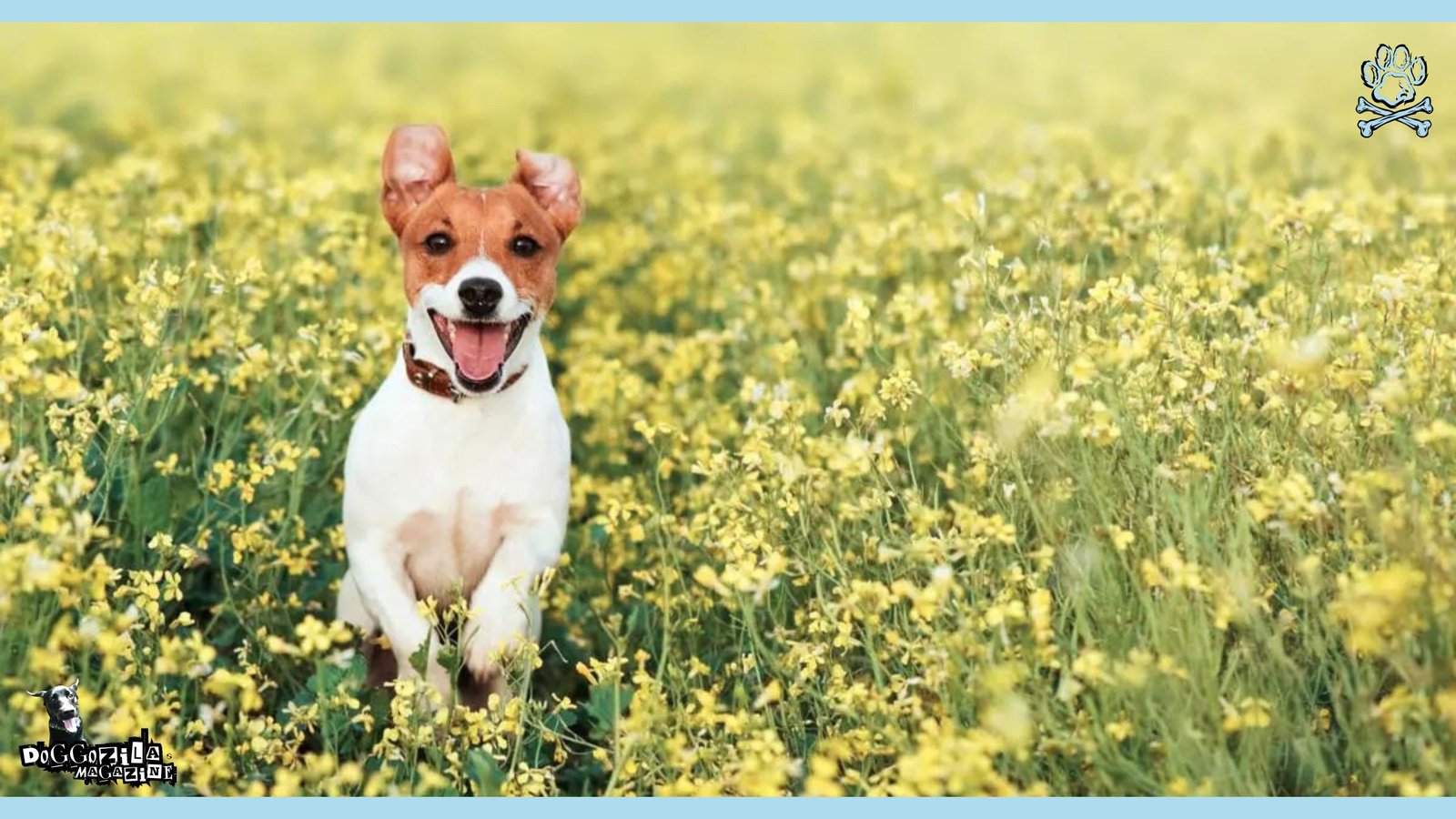
Let’s continue to explore, learn, and celebrate the extraordinary intelligence of our beloved furry friends.





